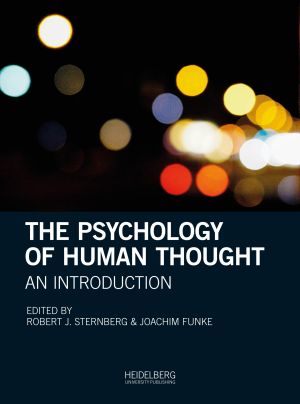
Zitationsvorschlag
Lizenz

Dieses Werk steht unter der Lizenz Creative Commons Namensnennung - Weitergabe unter gleichen Bedingungen 4.0 International.
Identifier
Veröffentlicht
The Psychology of Human Thought
An Introduction
„Psychology of Human Thought“ ist eine Sammlung frei zugänglicher, qualitätsgeprüfter Kapitel aus allen Gebieten höherer Kognition. Sie ist gedacht als Lesebuch zum Studium komplexer Kognition und des menschlichen Denkens. Die Kapitel umfassen die Themen Begriffserwerb, Wissensrepräsentation, induktives und deduktives Schließen, Problemlösen, Metakognition, Sprache, Kultur, Expertise, Intelligenz, Kreativität, Weisheit, Denkentwicklung, Denken und Gefühle. Auch Kapitel zur Geschichte und zu Methoden sind dabei. Die Kapitel sind von weltweit führenden Experten aus den USA, Großbritannien, Frankreich, Norwegen, Israel, Australien und Deutschland verfasst. Das Niveau ist ausgerichtet auf fortgeschrittene Studierende.



